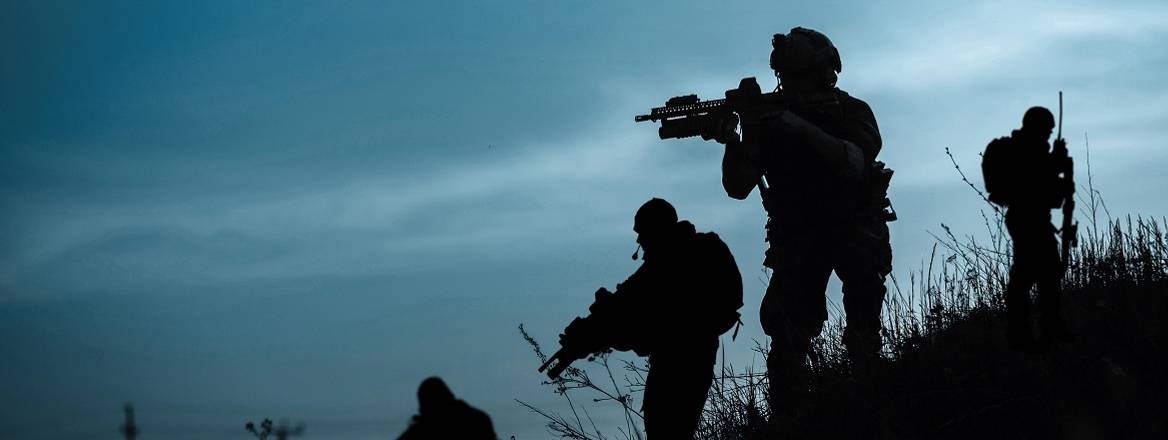Sharpening the Dagger: Optimising Special Forces for Future Conflict
This Whitehall Report analyses the ways in which special forces have been used historically and how adversaries are increasingly likely to use them. It assesses how the future operating environment is likely to change the way in which special forces pursue many of their missions.
Militaries have found a persistent need to establish units that are detached from the conventional force structure to address discrete challenges. Detached units provide policymakers and senior commanders with the ability to directly oversee critical tactical activity. Historically, these units have been employed to carry out strategic reconnaissance, raiding and interdiction, fomenting rebellion and insurgency, working with partnered forces, high-risk and high-profile operations that require the greatest possible assurance, and tasks where secrecy is vital. To accomplish these tasks, special forces have tended to select members from the conventional military who are able to work independently, are creative, have additional non-military skills such as languages, and are highly proficient in a range of military specialisms. This limits the size of special forces units, because only a minority within a military are suitable. How these forces are prioritised is therefore an important operational question; they cannot be surged at short notice.
For much of the 20th century, special forces have worked at the seams of the battlefield. During the War on Terror, the blending of military and intelligence practices, the need to work in a range of complex environments, and the demand for high levels of assurance have all placed special forces at the tip of the spear as the forefront of NATO’s military effort. The result has been the refinement of the counterterrorism raiding function. But the tempo of operations raises questions about the readiness of special forces to reprise some of their other functions as the world returns to an era of great power competition. While the US can use mass to address this tension, smaller states are liable to find their special forces increasingly stretched and cannot readily expand their number. This report therefore provides an assessment of the likely future demands on special forces to assess how they can be optimised for the future operating environment.
WRITTEN BY
Dr Jack Watling
Senior Research Fellow, Land Warfare
Military Sciences


